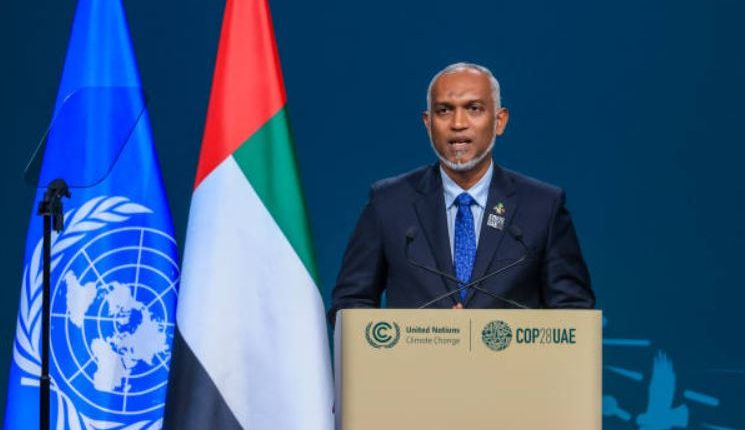Maldives Urges Indian Troop Withdrawal by March 15 Amid Growing Ties with China
In a significant development, the Maldives has formally requested India to withdraw its troops from the archipelago by March 15, escalating tensions between the South Asian neighbors.
The move comes as President Mohamed Muizzu, who secured victory in the previous year’s election, aims to fulfill his commitment to end the Maldives’ longstanding “India first” policy, amidst the competitive influence of New Delhi and Beijing in the region.
Indian Military Presence in Indian Ocean Islands
A contingent of approximately 80 Indian soldiers has been stationed on the Indian Ocean islands to provide support for military equipment supplied by New Delhi and assist in humanitarian efforts.
However, in recent talks between senior delegations from both countries at the Maldivian foreign ministry, President Muizzu proposed the withdrawal of Indian troops.
Ahmed Nazim, Policy Director at the President’s Office, stated, “In this meeting, on behalf of President Muizzu, the Maldivian delegation proposed the removal of Indian troops by March 15. These discussions are ongoing.”
During his campaign, President Muizzu emphasized the need to address New Delhi’s substantial influence, considering it a threat to the Maldives’ sovereignty.
Nazim reinforced this stance, asserting, “The most important point to note here is that Indian troops cannot stay in the Maldives. That’s the policy of this government. It is also the president’s pledge and what the people of Maldives want.”
India’s foreign ministry acknowledged discussions on various bilateral cooperation issues but remained silent on the matter of the soldiers’ departure.
The statement mentioned, “Both sides also held discussions on finding mutually workable solutions to enable the continued operation of Indian aviation platforms that provide humanitarian and medvac services to the people of Maldives.”
The geopolitical landscape in the region is further complicated by the strengthening ties between the Maldives and China. During President Muizzu’s recent state visit to Beijing, both nations upgraded their relationship to a comprehensive strategic cooperative partnership.
This move opens the door for increased Chinese investments in the Maldives, with the country already owing China a substantial amount, equivalent to around 20% of its public debt.
The Maldives Embraces Strategic Shift

President Muizzu, in a clear signal of defiance towards India after the state visit to China, declared that the Maldives, despite its small size, will not tolerate bullying. He emphasized China’s firm respect for the Maldives’ territorial integrity and revealed plans to boost Chinese tourism to the islands.
To reduce dependence on India, President Muizzu announced plans to implement measures that would enable the Maldives to chart an independent course.
The ongoing developments indicate a significant shift in the geopolitical dynamics of the region, with the Maldives navigating a delicate balance between its traditional ally, India, and the rising influence of China.

